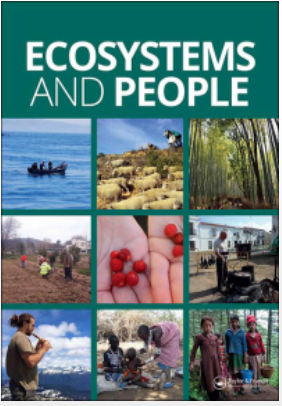Stakeholder perspectives on the effectiveness of governance in red panda conservation programmes in Nepal: a comparative analysis
IF 5.3
Q1 Agricultural and Biological Sciences
引用次数: 4
Abstract
ABSTRACT This paper investigates the views of multi-stakeholders on the governance quality of existing forest management strategies for red panda (Ailurus fulgens) protection in Nepal, focusing on forest governance in general, red panda conservation programmes and natural habitat protection in particular. The study deployed two surveys in August and September 2020. The first survey was conducted online for the stakeholders with internet access; for those without, it was conducted over the phone. While the results reveal almost similar perspectives among the stakeholders regarding the effectiveness of the red panda management approaches, they differ significantly between the online survey and telephonic survey, in terms of the relative scores given to these initiatives. In depth, follow-up interviews revealed that marginalised groups had little access to income generation from conservation activities and few capacity-building opportunities. These findings indicate that while management strategies for red panda conservation were generally considered effective by online survey participants which are generally more privileged, this is less effective for marginalised people. Local people, who are typically resource-poor and reliant on the forest, continue to endure inequitable resource distribution and benefit sharing. Consequently, greater attention should be paid to balancing the conservation needs and basic needs of forest-dependent communities through capacity building, income generation and alternative sources of livelihood.利益相关者对尼泊尔小熊猫保护项目治理有效性的看法:比较分析
摘要本文调查了多方利益相关者对尼泊尔保护大熊猫现有森林管理战略的治理质量的看法,重点是总体森林治理、大熊猫保护计划,特别是自然栖息地保护。该研究在2020年8月和9月进行了两次调查。第一次调查是在网上为有互联网接入的利益相关者进行的;对于那些没有的人来说,这是通过电话进行的。虽然研究结果显示,利益相关者对大熊猫管理方法的有效性的看法几乎相似,但就这些举措的相对得分而言,在线调查和电话调查之间存在显著差异。深入的后续访谈显示,边缘化群体几乎没有机会通过保护活动创收,能力建设机会也很少。这些发现表明,虽然在线调查参与者通常认为保护大熊猫的管理策略是有效的,但这对边缘化人群来说效果较差。当地人通常资源匮乏,依赖森林,他们继续忍受资源分配和利益分享的不公平。因此,应更加重视通过能力建设、创收和替代生计来源,平衡依赖森林的社区的养护需求和基本需求。
本文章由计算机程序翻译,如有差异,请以英文原文为准。
求助全文
约1分钟内获得全文
求助全文
来源期刊

Ecosystems and People
Agricultural and Biological Sciences-Ecology, Evolution, Behavior and Systematics
CiteScore
7.80
自引率
11.30%
发文量
40
审稿时长
42 weeks
期刊介绍:
Ecosystems and People is an interdisciplinary journal that addresses how biodiversity and ecosystems underpin human quality of life, and how societal activities and preferences drive changes in ecosystems. Research published in Ecosystems and People addresses human-nature relationships and social-ecological systems in a broad sense. This embraces research on biodiversity, ecosystem services, their contributions to quality of life, implications for equity and justice, and the diverse and rich ways in which people relate to nature.
 求助内容:
求助内容: 应助结果提醒方式:
应助结果提醒方式:


